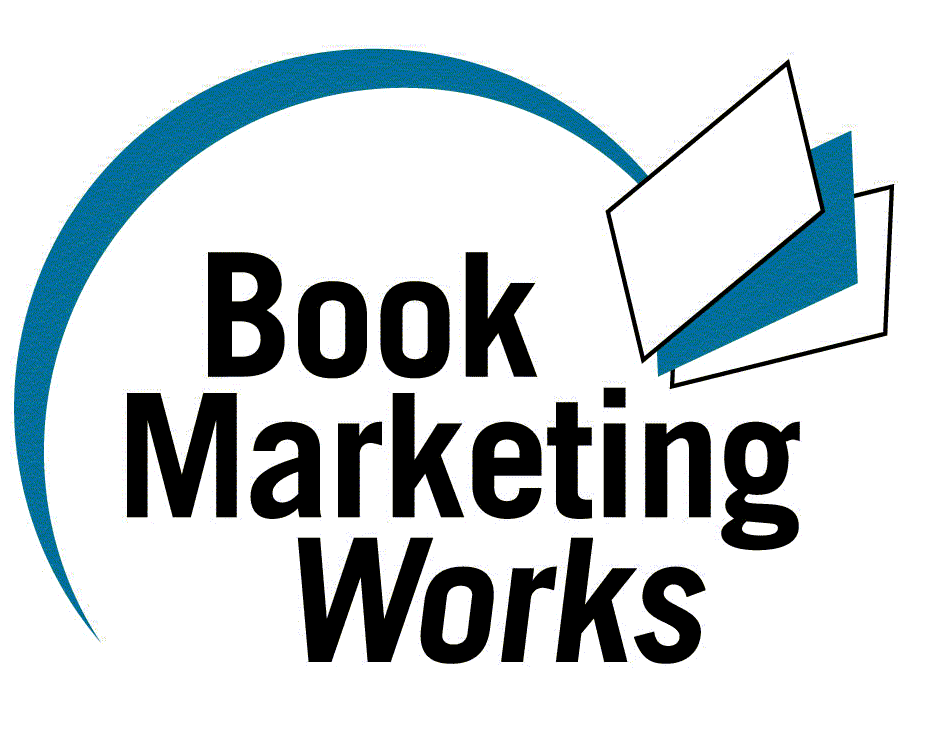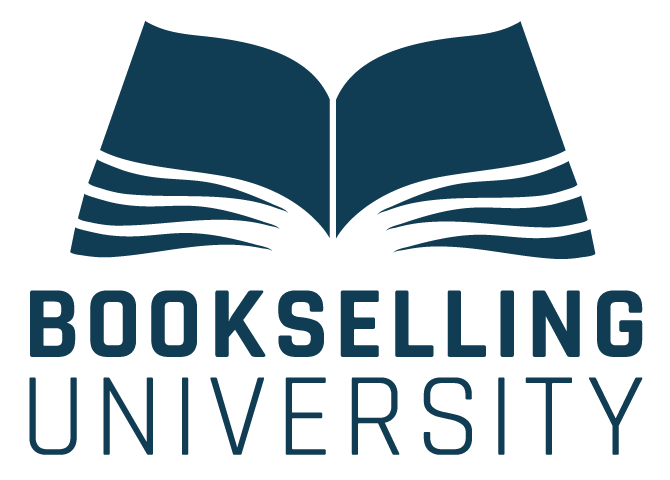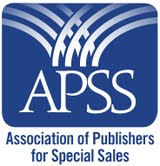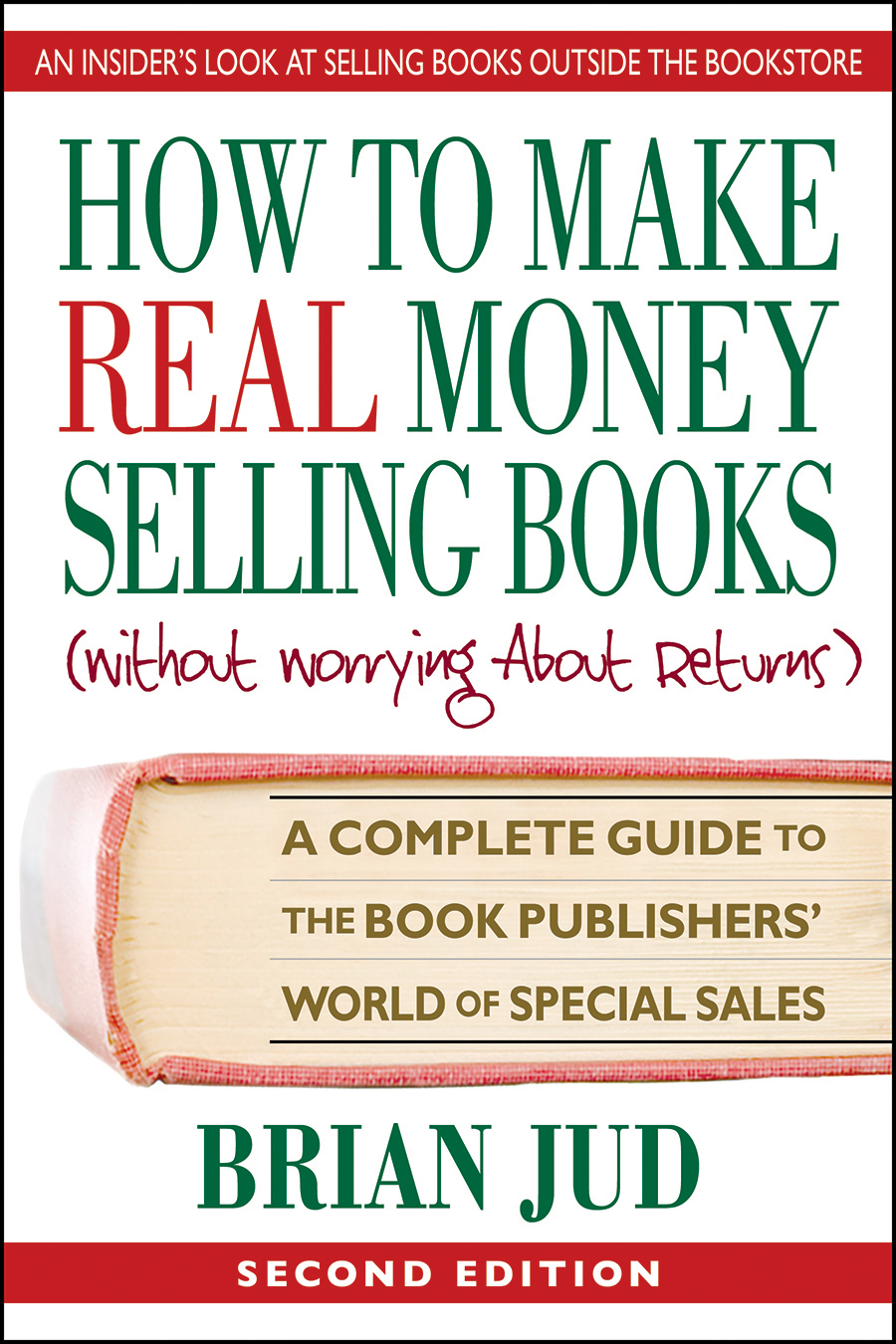|
How to Sell More Books to Corporations By Brian
Jud Publishers
seeking sales in non-bookstore markets often think only in terms of selling to
retail outlets such as discount stores, warehouse clubs, airport stores or gift
shops. However, there is an often-overlooked segment made up of buyers that
frequently purchase books in large quantities, pays in 30 days and does not
require a distributor. This niche is comprised of companies that buy books not
necessarily for re-sale, but to motivate their sales forces, educate their
employees, improve their images or use as sales incentives to sell more of
their products. This
market can be lucrative, if you know how to sell to the buyers. This begins
with an understanding of why they might use your books to improve their
circumstances, to make their companies more profitable. An appeal to
traditional buying motives may not work under these conditions. The people
with whom you will be negotiating are skilled professionals, used to dealing
with knowledgeable, competent sales representatives. The buyer is probably not
the Purchasing Agent for the companies, but perhaps the Human Resources
Manager, Sales Manger or Brand Manager. The content of your book will determine
the prospective decision maker. Many of
these businesspeople have never thought about using books as promotional tools.
So if you come across as a consultant with ideas to help them, you are more
likely to make the sale. If you know how they could use your titles to sell
more of their products or services you will find a willing ear. Below
are suggestions to fuel your discussion. Use this list to help plan how they
might best use your titles. 1) Human
Resource planning. If you have a concept that would help employees
plan for their retirement, ask people in the Human Resources department if they
could use your titles in their retirement-planning programs. They might also
consider titles that would help them implement other parts of their benefit
programs. 2)
Training and motivation. According to Frank Fochetta (VP, Director of
Special Sales and Custom Publishing at Simon & Schuster), “Companies such
as Herbal Life and Amway buy motivational and business books to resell to their
distributors.” In many other businesses, managers regularly seek new ways to
train and motivate their employees, too. Your titles on leadership, motivation,
self-help, selling techniques or new business topics could be useful to these
executives. 3) Gift to customers.
Fiction and nonfiction titles may be the perfect gift for customers, employees
or to recognize unusual events or special marketing periods. Mark Resnick
(partner in FRW Company) tells us, “Some cruise ship lines, give passengers a thank-you
gift upon departing the ship. Sometimes they use a book about one of the destination
ports as the souvenir. 4)
Sell through their stores. If companies have stores for
employees, either on the premises or online, they may purchase your books for
resale. Majors Internet Company
provides a service called The Company Bookstore. This is a
business-to-business solution for selling books to employees of corporations.
In effect, Majors puts a bookstore inside the corporation. Purchasing managers,
Corporate Library Professionals, and Information Service Managers can link to a
customized version of the company bookstore to offer employees access to a
comprehensive database of titles. Majors
customizes The Company Bookstore for the corporate intranet, processes
credit card transactions, picks, packs & ships, and provides management
reports. Majors is a vendor for the corporate employee as well as for
information centers, training and development, and research departments. J.A.
Majors Company - 4004 Tradeport Boulevard, Atlanta, GA 30354; Phone:
404-608-2660, 1-800-241-6551, Fax: 404-608-2656, http://www.majors.com/corporations/corporations.htm. Books Are
Fun, Ltd. (A Reader's Digest Company) is a leading display marketer of books
and gifts. They offer hardcover books, gifts, and educational products at
savings of up to 80% off retail prices. Their book fairs and book displays
supply innovative, premium quality products to corporations, schools,
hospitals, and early learning centers throughout the United States and Canada.
Books Are Fun serves over 60,000 schools, 12,000 corporations, 20,000 early
learning centers, and many hospitals, universities, government offices and
non-profit organizations in the United States and Canada through a variety of
programs. The Books Are Fun formula is
simple. They buy huge, non-returnable quantities of books and gifts directly
from publishers and manufacturers, and sell those products at deep discounts
directly to end users through display marketing events. They typically donate a
percentage of the proceeds in books or cash to the sponsoring organization or
to a designated charity. Books submitted to Books Are Fun will not be returned.
For questions regarding book submissions, email baf_submissions@booksarefun.com.
Book submissions can be sent to: Books Are Fun Attn: Submissions Department,
1680 Hwy 1 North, Fairfield, IA 52556. 5)
Public relations. Companies may use books to
establish, repair or improve their reputations. This may be accomplished by
providing books to volunteer groups or by donating them to a worthy cause.
Companies celebrating an anniversary may also use related books to help promote
and celebrate the event. Charlene Costanzo sold her title, The
Twelve Gifts of Birth, to children’s shelters to use as a fundraiser. But
the image it created in the public’s mind was upbeat, creating positive
word-of-mouth advertising for the shelters. Companies may use books to maintain or
create an image, too. Many hospitals do this when they give a package of
products to the parents of babies delivered there. If your title has
information that is important to the first years of a baby’s life, it might be
included in this package. 6)
An addition to the corporate library. Some businesses
have an internal library. If so, show the company librarians how your title
could be appropriate to their needs. If it is on an applicable topic -- such as
selling, industry information, motivation, or marketing – you might convince
them to add your title to their collections. 7)
Enhance other marketing campaigns. Laws and
do-not-call lists limiting the activities of telemarketers will increase the
use of direct mail to accomplish the same result. Businesses conducting
direct-mail campaigns want recipients to open the envelopes immediately upon
receiving them, and one way to do this is to offer a teaser on the envelope
announcing a “free gift inside,” or an “offer for a free gift inside.”
Statistics have proven this to be an excellent way to increase response rates,
and your book or booklet may perform that function. 8) Sales
promotional tools. Brand managers have bottom-line responsibility for
their product line and are interested in increasing their sales. Show them how
they could use your titles to make this happen and you will find an interested
prospect. Coupon. Manufacturers may offer a dollars-off,
in-pack, on-pack, or near-pack coupon entitling the bearer to a discount on
your product. For example, a pet food company might include a coupon in a bag
of dog food (in-pack) for a discount on your video about dog care. The manufacturer may offer the same
coupon on-pack, printed on the exterior of the package and visible to the
consumer. Near-pack coupons are provided at the point of sale (perhaps as a
peel-off coupon or in a “take-one” container) in close proximity to where the
item is being sold. For example, a coupon for a book containing holiday recipes
could be placed near a display of Pfaltzgraff plates with Christmas décor. Coupons serve another function whenever
the customer is required to send any information to you. Your company garners
information to build its database, which can offset costs of the free items. Premium. When used as a premium (an item given away
to attract, retain or reward customers or to motivate employees),
a product may be offered at a relatively low cost (or free) as an incentive to
purchase a particular product. If the dog-food manufacturer mentioned above
included your dog-care video inside the package – instead of a coupon for it –
your product would be considered a premium. Attend or exhibit at appropriate trade shows. The Incentive Show (held in New
York annually, http://www.piexpo.com/)
is an excellent place to display your products for use as premiums. You may
also find rep groups there willing to carry your titles. Prize. A high-price or high-value book might be
offered as a prize in a contest or sweepstakes. Samples. Businesses may use your items to give to
customers or the general public at no charge in order to build goodwill, and
traffic to their stores. They might place a sample chapter of your book on
their website, offering the complete version as a self-liquidator. Hammermill Paper Company purchased over 5000 copies of
Paulette Ensign’s booklet 110 Ideas for Organizing Your Business Life as
a premium for their sales representatives to leave behind with prospects after
a sales call. The only change to which Paulette had to accede was to allow
Hammermill to print the booklets on their paper to serve as a sample. Self-liquidator. When a
book is sold at a price low enough to entice buyers, but high enough to cover
it’s cost, it is being used as a self-liquidator. Many supermarkets use this
tactic to entice shoppers to buy more at their store. Here, buyers may purchase
a book at a discounted price with a minimum purchase. Or shoppers may be
offered a continuity series at a reduced price. Once you know how a prospective customer might use your titles, the next step is to contact and negotiate with them. Brian Jud is an author, book-marketing consultant, creator of the Book Market Map directories for special sales, and author of “Beyond the Bookstore” (a “Publishers Weekly” book) and “The Marketing Wizard CD.” Contact Brian at P. O. Box 715, Avon, CT 06001; (800) 562-4357; brianjud@bookmarketingworks.com or visit http://www.bookmarketingworks.com |
Check out these testimonials...





